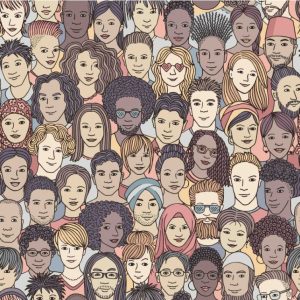Australians’ sense of belonging slipping – report
Australians’ sense of belonging to the nation has declined over time, according to a new study from the Scanlon Foundation.
But it also found that Australians are finding more meaning in their links to their local neighbourhood, local community and personal and social networks.
The study titled ‘On belonging’, part of the Scanlon Foundation’s Social Cohesion Insights Series, measured levels of belonging, by extracting data from the annual Scanlon Foundation social cohesion surveys.
It defined ‘belonging’ as the extent to which people feel personally accepted, respected, included and supported by others.
 Report author Senior Research Analyst John van Kooy said that people born in Australia, and particularly men, had the highest average belonging scores compared to those born overseas.
Report author Senior Research Analyst John van Kooy said that people born in Australia, and particularly men, had the highest average belonging scores compared to those born overseas.
But he said people who were born in countries where English is not the primary language had the lowest levels of belonging in Australia.
“Recently arrived migrants, those who had only been in Australia within five years of the 2021 survey, had the lowest average belonging scores of all overseas-born respondents, when compared with migrants who had been in Australia for longer,” the report said.
“Migrants who had been living in Australia for more than 20 years had relatively high levels of belonging, within one index point of the Australian-born population.
“Migrants who reported experiencing discrimination due to their skin colour, ethnic origin, or religious background in the 12 months prior to the 2021 survey had low levels of belonging.
“The gap was particularly evident when comparing this group to Australian-born respondents who had not experienced discrimination.”
The report revealed that some of the most drastic differences in belonging observed in the 2021 survey were reflected in respondents’ financial situation.
“Survey respondents who were struggling financially had low average belonging scores. By contrast, people who were very comfortable financially had a belonging score of five index points above the average for all respondents,” the report said.
A similar relationship was seen in respondents’ occupational status.
“People who reported being unemployed, a student, or not in the labour force had the lowest average belonging scores. In comparison, people who were retired had very high relative belonging scores,” the report said.
The report also pointed to groups who may not be deriving the benefits of a sense of belonging.
“Young people, those born in non-English speaking countries – particularly if they are recently arrived, people who have experienced some form of discrimination, and those who are struggling financially all show relatively low levels of belonging against the index,” the report said.
Monash University psychologist Dr Kelly-Ann Allen is cited in the report saying that “an absence of belonging has negative and devastating effects on people, both physically and psychologically”.
“People who feel that they do not belong to an ‘in-group’ are likely to feel pain associated with isolation or being ostracised. In contrast, research shows that strong social bonds between people can improve individual happiness, create buffers against stress, and be a protective factor against depression. Indeed, having strong social relationships can be crucial to finding meaning in life,” Dr Allen said.
She argued that Australia “should strive to create a culture of social inclusion so that acceptance, inclusion and empathy towards others become social norms”.
“This may mean greater investment in targeted social programs. For example, minority groups receiving encouraging messages from other members of the community that acknowledge their hardships has been shown to improve health and wellbeing outcomes,” Dr Allen said.
Read the full report: Social Cohesion Insights 04: On Belonging | Scanlon institute












